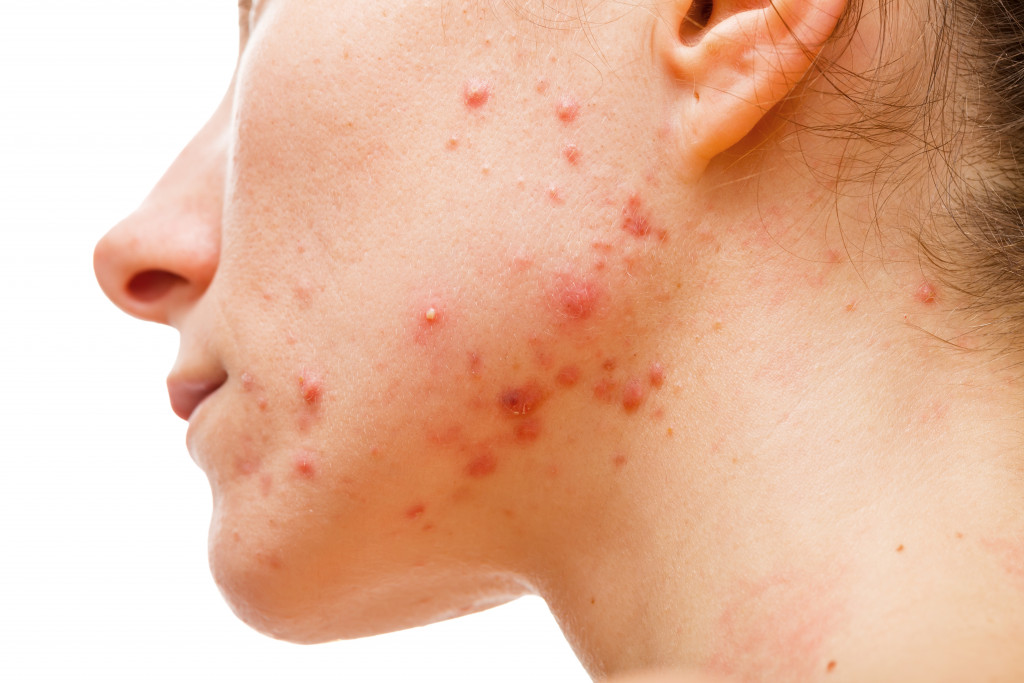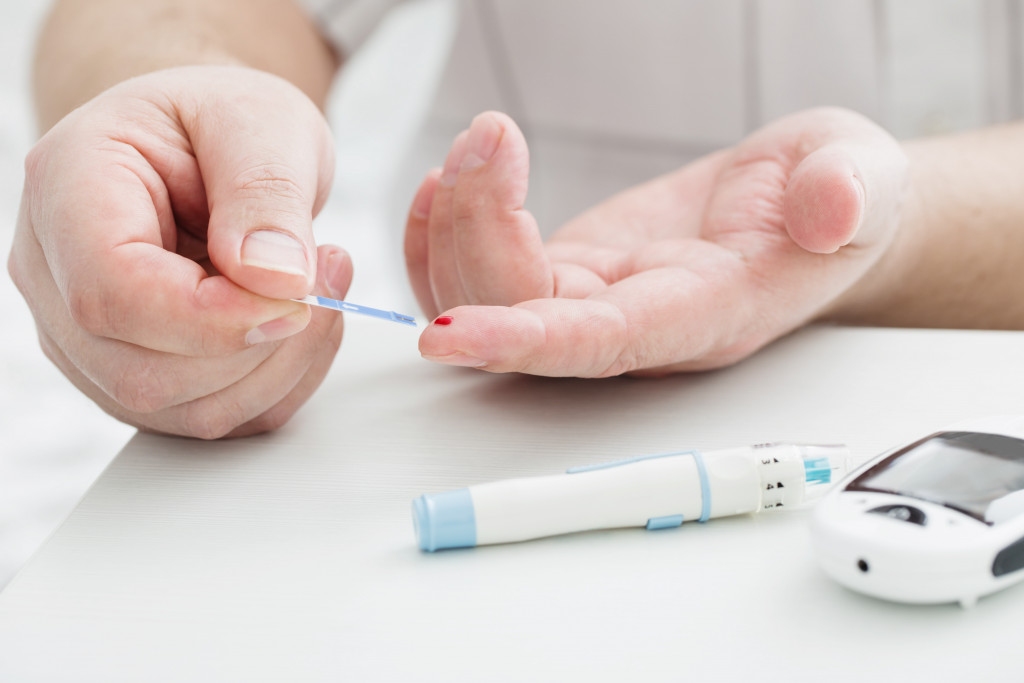It is no secret that hormonal imbalance can drastically affect a woman’s daily life. From causing fertility problems to triggering acne breakouts, the list of potential issues goes on and on. This article will explore some of the most common effects of hormonal imbalance in women and offer advice on how to deal with them.
What Is A Hormonal Imbalance?
Hormonal imbalances occur when the body’s hormones are not balanced, and their levels become too high or too low. Because hormones are responsible for controlling a variety of body processes, including the menstrual cycle, metabolism, and reproductive health, an imbalance can lead to a variety of unwanted symptoms.
Women are particularly vulnerable to hormonal imbalances. Fluctuating hormones heavily influence women’s health. Many conditions that affect women, such as polycystic ovarian syndrome (PCOS) and menopause, are related to hormones.
Types of Hormones Involved in Hormonal Imbalance
Many hormones are involved in a woman’s overall hormonal balance, including estrogen, progesterone, testosterone, thyroid hormones, and insulin.
1. Estrogen
Estrogen is the primary female hormone. It plays a role in regulating the menstrual cycle, fertility, and sexual desire. Low estrogen levels can cause irregular periods, infertility, and hot flashes. High estrogen levels can lead to fluid retention, weight gain, and mood swings.
2. Progesterone
This hormone helps regulate the menstrual cycle and prepare the body for pregnancy. When progesterone levels are too low, it can cause irregular periods and infertility. On the other hand, high progesterone levels can cause fatigue, bloating, and breast tenderness.
3. Testosterone
Women naturally produce testosterone, too. Testosterone is essential for a woman’s libido and energy levels. It can also help with the production of other hormones, such as estrogen and progesterone.
4. Thyroid hormones
These hormones help regulate metabolism and energy levels. When the thyroid is not producing enough hormones, it can lead to fatigue, weight gain, and depression.
5. Insulin
Insulin plays an important role in regulating blood sugar levels. When insulin levels are too high or too low, it can lead to weight gain, fatigue, and other metabolic issues.
Hormonal Imbalance Causes and Symptoms
Various factors can contribute to a hormonal imbalance, including age, diet, stress, certain medications, and medical conditions. For example, stress can disrupt the production of hormones, leading to an imbalance. Diet and lifestyle choices can also have a profound effect on hormones. Other factors, such as pregnancy and menopause, can cause temporary hormonal imbalances. Common symptoms include fatigue, irregular periods, weight gain, mood swings, and acne.
Its effects on the menstrual cycle can include irregular periods, heavy bleeding, and missed periods. A hormonal imbalance can cause infertility due to disrupted egg production or ovulation. It can also cause changes in sexual desire and libido, mood swings, anxiety, and depression. These can all hurt women’s physical and mental health.
Medical Treatments to Treat Hormonal Imbalance
When it comes to treating hormonal imbalances, various medical treatments are available. Depending on the cause of the imbalance, treatments may involve the following:
Hormone replacement therapy
Hormone replacement therapy (HRT) replaces hormones not produced in adequate amounts, such as estrogen and progesterone. This can help to restore hormonal balance and alleviate some of the symptoms associated with imbalance.
Medication
Certain medications can also be used to treat hormonal imbalances. These include oral contraceptives, which can help regulate the menstrual cycle and improve fertility; thyroid medications, which can help regulate the metabolism; and insulin, which can help to regulate blood sugar levels.
Surgery
In some cases, surgery may be recommended to treat hormonal imbalances. This can include removing cysts or fibroids and hysterectomies in severe cases. Due to the serious risks associated with surgery, it is only recommended as a last resort.
Of course, there are also risks and benefits associated with any medical treatment. For example, HRT may increase the risk of stroke and blood clots, while medications can have their side effects. Discussing all treatment options with your doctor to determine the best course of action is important.
Natural Remedies For Hormonal Imbalance
In addition to medical treatments, there are also natural remedies that can help to restore hormonal balance.
1. Exercise
Regular exercise can help to regulate hormones and improve overall health. Aim for at least 30 minutes of physical activity daily, such as walking or jogging.
2. Healthy Diet
A healthy, balanced diet can help regulate hormones and improve overall health. Limit your processed foods and sugary snacks intake, and focus on eating plenty of fruits, vegetables, and protein.
3. Stress Management
Stress can disrupt hormone production and lead to an imbalance. To reduce stress, try deep breathing exercises, yoga, or meditation.
4. Lifestyle change
This can include avoiding specific triggers, such as cigarettes and alcohol. It can also involve getting enough sleep and adopting a regular exercise routine.
5. Herbal remedies
Many herbs, such as chasteberry and evening primrose oil, are believed to help regulate hormones. Other examples include maca root and flaxseed. However, it is important to always consult a doctor before taking any herbal supplements. These remedies may interact with other medications or have side effects.
Impact of Hormonal Imbalance on Women’s Health
Mental Health
Because hormones can affect mood and energy levels, a hormonal imbalance can significantly impact mental health. Low estrogen levels, for example, may cause problems such as depression, anxiety, and irritability. High progesterone levels can also lead to increased anxiety and decreased libido.
Physical Health
Hormonal imbalances can also cause various physical health issues.
Osteoporosis
Low estrogen levels can lead to weaker bones, increasing the risk of osteoporosis. Women should aim to get enough calcium in their diet and engage in weight-bearing exercises to prevent bone loss.
Heart Disease
High testosterone levels can increase the risk of heart disease. Women should maintain healthy cholesterol and blood pressure levels and exercise regularly.
Breast Cancer
The risk of breast cancer may also be increased with high levels of certain hormones, such as testosterone and estrogen. This is why getting regular screenings and checking for any lumps or other changes is important.
Fertility problems
One of the most common effects of hormonal imbalance in women is fertility problems. If you have difficulty conceiving, it may be due to an imbalance in your hormones. Because the hormones responsible for ovulation are affected by an imbalance, you may not be releasing eggs regularly. This can make it difficult to become pregnant. As mentioned, a hormonal imbalance may disrupt ovulation and prevent conception. Fertility treatments, such as in vitro fertilization (IVF), can help to restore balance and improve fertility.
There are a variety of treatments available that can help to correct this issue, so be sure to speak with your doctor if you are having trouble conceiving. They may recommend medication, lifestyle changes, or surgery. For example, if you have PCOS, a common cause of hormonal imbalance, your doctor may prescribe fertility drugs to help you ovulate. It is important to note that it may take several months, or even years, to conceive after starting treatment for hormonal imbalance.
Weight gain
Weight gain is another common effect of hormonal imbalance. If you carry around extra weight, it may be due to an imbalance in your hormones. It is thought that when hormones are out of balance, the body has a more challenging time breaking down and using stored fat for energy. This can lead to weight gain.
Some women also find that their appetite increases when they are hormone imbalanced. This can lead to overeating and further weight gain. You must speak with your doctor if you are struggling with your weight. They can help you create a plan to lose weight healthily.
You may also want to consider changing your diet and exercise routine. Eating a healthy diet and regular exercise can help normalize hormone levels and prevent weight gain.
Dental problems
Hormonal imbalance can also cause a variety of dental problems. For example, you may experience gum disease or tooth decay if your hormones are out of balance. This is because hormonal imbalance can affect the body’s ability to fight off bacteria.
Many women only experience mild dental problems as a result of hormonal imbalance. However, in some cases, the issues can be more severe. If you are having dental problems, be sure to visit your local dentist clinic for an evaluation. They can help you determine the cause of the problem and develop a treatment plan.
But, there are things you can do at home to help prevent or reduce the effects of hormonal imbalance on your teeth. Be sure to brush and floss regularly. You should also avoid sugary and acidic foods, which can damage your teeth. You may also want to consider using a mouthwash that contains fluoride.

Acne
Your hormones play a significant role in the health of your skin. When they are out of balance, it can lead to various skin problems, including acne. Acne is caused by an overproduction of oil in the skin. This can clog pores and lead to breakouts.
If you suffer from acne breakouts, you must speak with your doctor. They can prescribe medication to help clear up your skin. A dermatologist can also offer advice on how to manage your acne. You can also do several things at home to help improve your skin.
For example, wash your face twice a day with a mild cleanser. You should also avoid touching your face, which can transfer bacteria and oil to your skin. You may also want to use an over-the-counter acne treatment, such as Benzoyl peroxide. Depending on the severity of your acne, you may need to see a dermatologist for more aggressive treatment.
Depression
One of the most common effects of hormonal imbalance is depression. This is because hormones play a significant role in regulating our mood. When they are out of balance, it can lead to feelings of sadness, anxiety, and irritability. This can make it hard to concentrate, sleep, and enjoy activities you used to enjoy.
If you are struggling with depression, you must speak with your doctor. This is a severe condition that requires treatment. Your doctor can prescribe medication to help stabilize your mood. They can also refer you to a therapist who can provide additional support.
Hormonal imbalance can cause a variety of problems in your daily life. If you are experiencing any of the above symptoms, speak with your doctor. They can help you identify the cause of the problem and develop a treatment plan. Along with medical treatment, you can also do several things at home to help improve your symptoms. Be sure to take care of yourself and seek professional help if you are experiencing any problems.
FAQs About Hormonal Imbalances In Women
1) Which is the best way to treat hormonal imbalances?
The best way to treat hormonal imbalances depends on the individual and their needs. Some people may find relief with natural remedies such as exercise and a healthy diet, while others may need to take medication or undergo surgery.
2) What hormonal imbalance causes facial hair in women?
Excess testosterone is the most common cause of increased facial hair in women. This can occur due to PCOS or other medical conditions that disrupt hormone production.
3) What can women take for hormonal imbalance?
Women can take hormone replacement therapy to restore balance. They can also take certain medications, such as oral contraceptives, thyroid medications, and insulin. Natural remedies such as exercise and a healthy diet may also help.
4) How to fix hormonal imbalances in women?
The best way to fix a hormonal imbalance in women is to visit a doctor. They can recommend hormone replacement therapy, medications, and lifestyle changes. Natural remedies such as exercise and a healthy diet may also help to regulate hormones.
Final Thoughts
Hormonal imbalances can have a significant impact on women’s health. They can cause physical and mental symptoms that can significantly affect the quality of life. Fortunately, medical treatments and natural remedies are available to help restore balance and alleviate symptoms. It is essential to talk to a doctor and to take the necessary steps to maintain hormonal balance. With the right care, women can achieve and sustain optimal health.



